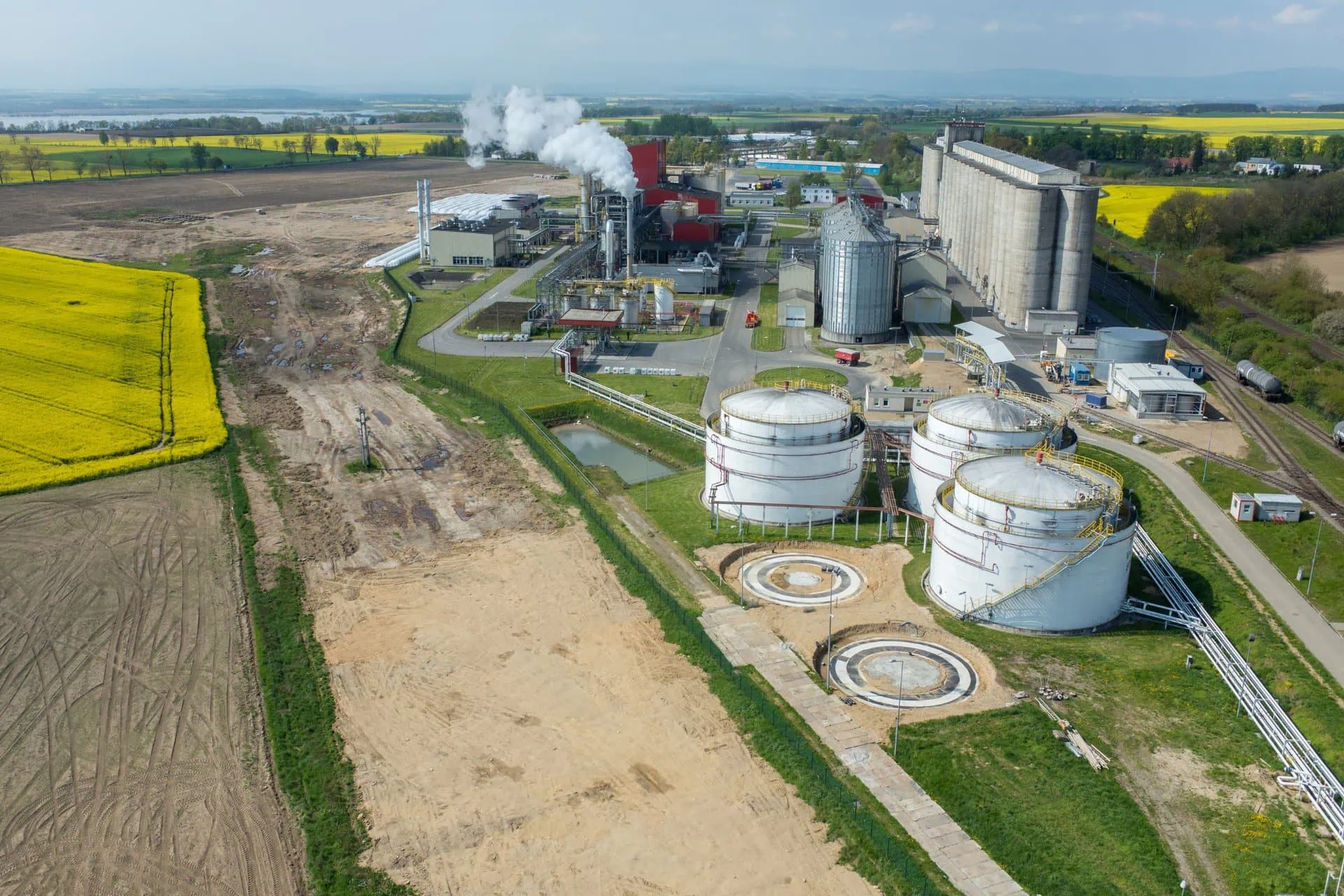– With Insights from Patrick Lynch, Founder of Bioledger and Biofuels Expert
In June 2022, the European Union introduced the Union Database for Biofuels (UDB) under the Renewable Energy Directive (RED). The UDB is an EU-wide digital platform designed to track the sustainability credentials, transactions, and movements of biofuels across the supply chain—including imports and exports—to ensure compliance with the bloc’s renewable energy targets and prevent fraud. Article 28 of the RED requires Member State and Voluntary Schemes to ensure that economic operators record all transactions in the UDB as a condition for RED compliance.
Implementing Regulation 2022/996 gave Voluntary Schemes, certification bodies and economic operators more guidance and the deadline to start using the UDB once it becomes operational. Initially, the UDB was set to go live in April 2023. A testing environment was made available but the implementation deadline was extended to January 2024, following complaints from industry and voluntary schemes. After further testing and feedback, the deadline was moved again to November 21, 2024, when the UDB is required to be fully operational and therefore mandatory for compliance.
“This shifting timeline has caused confusion in the biofuels industry, particularly around whether the UDB will actually come into force on November 21, 2024, and if its use will be mandatory from that date”, said Patrick Lynch, Founder of Bioledger. Much of this uncertainty stems from the fact that voluntary schemes and their certification bodies, which are responsible for communicating the rules and auditing RED compliance, have not yet been encouraging economic operators to start using UDB. Though registering all transactions in the UDB was added as a major conformance criteria in January 2024, as a condition to maintain their EC approved voluntary scheme status, this criteria is not being checked in the market by auditors. A major non-conformity would normally result in certificate suspension, a penalty reserved for intentional fraud or systemic failure on traceability.
“Many economic operators rely heavily on these voluntary schemes and certification bodies for guidance, and without clear direction, it remains uncertain how strictly the UDB will be enforced,” said Patrick. The lack of training in local languages only further complicates the situation.
Adding to the confusion, the ISCC, a key certification body, has posted that November 21 is a “strongly recommended” deadline for economic operators, rather than a strictly mandatory one. This has further muddied the waters about the UDB’s enforcement.
In this article, we will try to provide more clarity on the timeline of the UDB, what it means for companies and if they are ready, and the impact on the biodiesel market.
When is UDB Becoming a Reality?
Last week, the European Commission published a delegated act that brings more information about the UDB. This act addresses the outstanding questions for a regulatory requirement that companies and their auditors will need to follow to ensure the traceability, sustainability, and compliance of biofuel production and trade under the Renewable Energy Directive (RED). According to the act, the UDB will indeed become mandatory. It requires that voluntary schemes will have one week to update the database with new or renewed certificates and economic operators will have three working days to record their transactions in the UDB. It makes it unconditional that voluntary schemes must motivate UDB use by suspending or revoking certificates for non-compliance.
For the next few weeks, the act is still in its consultation phase and must be finalized before it’s published in the European Commission’s official journal. Once published, the UDB compliance will officially come into force 20 days later. This raises the question: Will the November 21st deadline be met, or will there be another delay? Here’s what we know:
- The consultation period closes on November 7th, after which feedback from stakeholders will be reviewed and integrated
- During a recent stakeholders’ call, one of the project leaders estimated it could take an additional 1-2 months after the consultation to finalize and implement the feedback before the act is published. Note that this isn’t an official statement, but a speculation.
- Once published, the UDB will become mandatory 20 days later.
According to this timeline, Vesper believes that the UDB could be enforced early 2025.
Currently, the UDB is already operational for liquid supply chains, while gas stakeholders are in a pilot phase. These ongoing developments indicate that the infrastructure for broader implementation is gradually taking shape.
What Does the UDB Mean for Companies?
Once the UDB is officially enforced, economic operators within the biofuels supply chain—those dealing with liquid and gaseous fuels for the transport sector—will be required to register their operations and supply chain data in the UDB. This is a critical development under the Renewable Energy Directive, aimed at enhancing transparency and sustainability throughout the biofuels industry.
Economic operators will be required to submit various types of information, including:
- Details on raw materials from the first collection points.
- Data related to sustainability certifications and greenhouse gas emissions.
- Information on material processing and transformation.
- Complete records of transactions (purchases and sales) involving raw materials or fuels.
In particular, the delegated act outlines detailed obligations for economic operators. These include providing full contact details, unique company identifiers, and all data provided in their sustainability certificates, such as the type of materials certified at each site, the greenhouse gas emissions calculation methods used, and the validity periods of their certifications. Additionally, first gathering or collection points must supply the full list of their points of origin, including contact details, unique identifiers, and estimates of raw material production capacity.
The regulation is strict in terms of compliance. Failure to meet the UDB registration requirements may lead to severe consequences, such as the suspension or withdrawal of sustainability certificates by voluntary or national schemes.
The Impact on the Biofuels Market
The implementation of the UDB is expected to have significant effects on the biofuels market, particularly in terms of tightening the supply chain and driving up prices. One of the most notable impacts will likely be the reduction of fraudulent feedstock and biodiesel entering the market, said Patrick. By enhancing transparency and traceability, the UDB aims to weed out operators who do not meet sustainability standards or who are taking advantage of loopholes.
This anticipated shift mirrors past regulatory actions and fraud investigations in the sector. In 2019, Dutch company Biodiesel Kampen was at the center of a major scandal. At the time, certified sustainable biofuels supplied by Biodiesel Kampen was equivalent for nearly a third of all Dutch biodiesel production. However, the company was found to have falsely labeled cheaper, unsustainable biofuel imports as advanced biofuels made from waste. Authorities discovered that it had manipulated documentation to pass off non-compliant products as legitimate, taking advantage of subsidies intended for sustainable operations. As a result of the investigation and subsequent revocation of certifications, Biodiesel Kampen faced legal action and ultimately declared bankruptcy by 2019. This case highlighted the need for tighter controls and compliance measures. With similar allegations arising from China and the far east being blamed for decimating biofuel and raw material prices in Europe and the USA, both industry and regulators have demanded much stronger traceability enforcement including implementation of the UDB. At the meeting of EU Energy Ministers last week, the UDB was the solution to address the concerns of biofuels imports raised by Irish, Dutch, German and Belgian energy ministers. The pressure is on.
Patrick Lynch, founder of Bioledger, anticipates that the UDB will have a similar stabilizing effect by removing non-compliant players from the market. Through Bioledger, Lynch helps companies manage biofuel operations, reduce fraud, and ensure compliance in biofuel certification processes, aligning with the broader goals of the UDB to enhance the integrity of the biofuels market. Specifically, Bioledger is a digital platform that tracks the sustainability and traceability of biofuels, ensuring compliance with EU and US regulations. It covers the entire supply chain, from raw material collection to biofuel production, using automated mass balance software that integrates directly with the UDB.
Are Companies Ready?
While the regulatory push towards mandatory UDB registration is becoming clearer, many market players are still unprepared to comply with the new requirements. Despite the significance of the UDB, a substantial number of economic operators are lagging in their readiness. As Patrick pointed out, many operators are still not ready and are unlikely to be fully compliant by November. Technical training on how to use the UDB has been sufficient but companies need to know exactly how they can optimize reporting of their specific operations, and the guidelines provided are perceived by some as inadequate. This lack of readiness is particularly pronounced outside of the European Union, where discussion of the UDB’s processes and requirements remains low.
EU commission said that 2024 is a transitional year, making it clear that there will be time for adaptation, improvement without strict enforcement. However, the Commission has not specified how long this transition period will last, leaving companies unsure about what to expect beyond 2024. Patrick Lynch believes that additional time will be needed into the first quarter of 2025 for operators to fully grasp the UDB system and implement the necessary procedures to remain compliant. The Commission has been trying to coordinate the launch and, in September, informed voluntary schemes that all first collectors should be onboarded by 1st October 2024, so that downstream producers and traders could receive UDB stock and transition from 0 to 100% UDB compliance in time for the November deadline.
In summary, while the UDB is operational and the decision has been made to make the UDB mandatory, the exact timeline for its enforcement remains uncertain. The delegated act published last week provides some much-needed clarity, but the consultation process and subsequent regulatory actions still leave a degree of ambiguity regarding the official implementation date. For now, January 2025 appears to be the earliest possible deadline, but nothing is set in stone.
What is clear, however, is that the UDB will be a pivotal regulatory tool for ensuring the sustainability and traceability of biofuels within the EU. Its introduction will likely drive some operators out of the market, while those that remain will need to invest in proper training, data management, and compliance systems to meet the stringent requirements.



